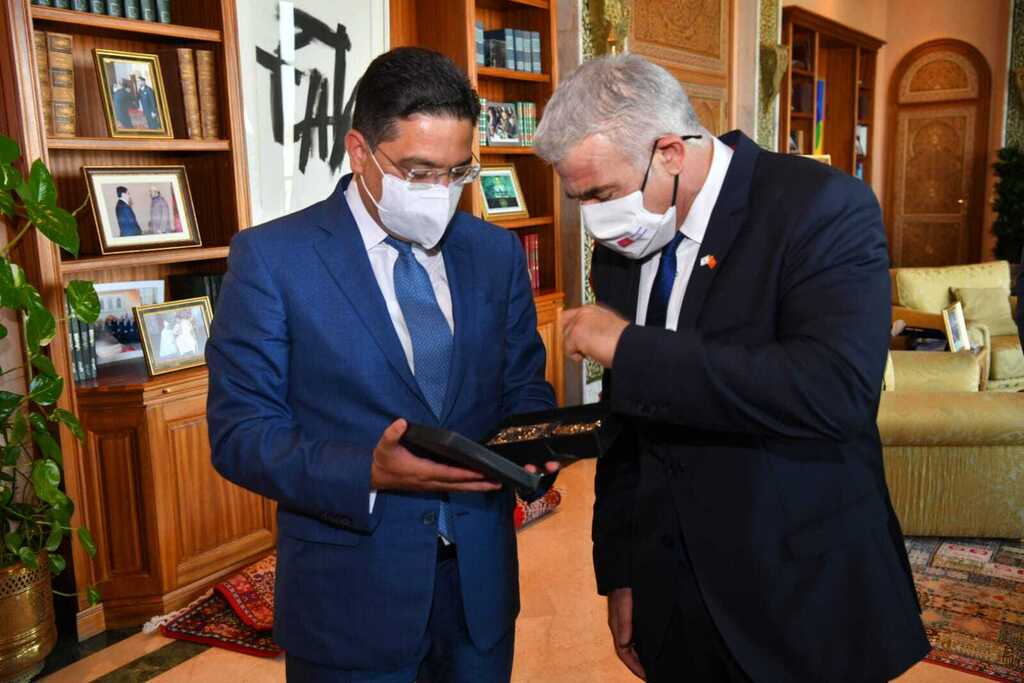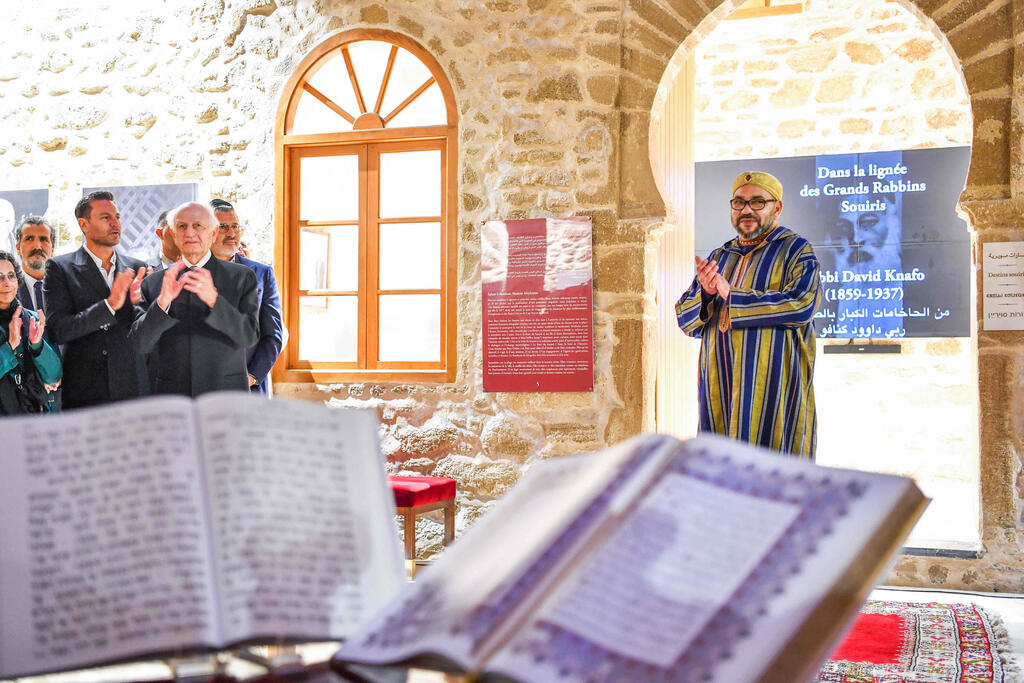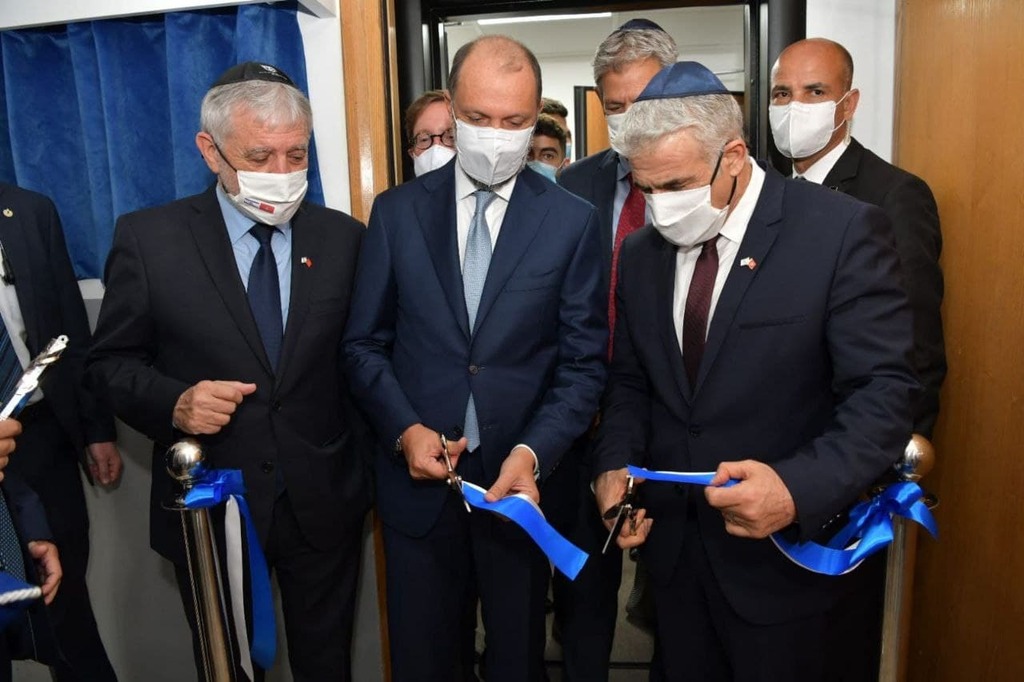Getting your Trinity Audio player ready...
Foreign Minister Yair Lapid on Thursday said that Israel was forming an axis of moderate Middle Eastern countries to oppose the religious extremism of Iran and its proxies in the region.
"Strategically, what we're creating here is a diplomatic axis featuring Israel, Morocco, Egypt, Jordan, Bahrain and the United Arab Emirates to present a pragmatic alternative to religious extremism," he said during a visit to Morocco in which he inaugurated the Israeli diplomatic representation in the North African country as a symbol of the normalization of the relations between the two nations
3 View gallery


Foreign Minister Yair Lapid, right, and Moroccan counterpart Nasser Bourita
(Photo: GPO)
"We are creating a cycle of life against the cycle of death of Iran and its proxies."
The Israeli top diplomat’s two-day visit is the first to the country by an Israeli minister since 2003. It comes less than a year after Israel and Morocco reached a deal to establish formal ties under the U.S.-brokered “Abraham Accords.”
Lapid said he had agreed with his Moroccan counterpart Nasser Bourita on further upgrading the ties between the nations and the opening of mutual official embassies.
He added that Bourita will travel to the Jewish state with Air Morocco's first Tel Aviv-bound flight to inaugurate the Moroccan mission there once the coronavirus situation in the country allows it.
Lapid tweeted pictures of him formally opening the Israeli liaison office in Rabat, the capital, alongside Morocco’s Foreign Affairs Deputy Minister, Mohcine Jazouli. He was then to head to Casablanca where he was to visit a synagogue, the Temple Beth-El.
On Wednesday, Lapid met with Bourita and both countries signed an air service agreement and another agreement to cooperate in the fields of culture, sports and youth.
They also signed a memorandum of understanding on the establishment of a political consultation mechanism between their countries’ foreign ministries, which appeared to fit into the wider design of the face-to-face diplomacy during Lapid’s visit.
U.S. Secretary of State Antony Blinken tweeted on Wednesday that the United States congratulates Morocco and Israel “on the reopening of the Israeli Liaison Office in Rabat. We will continue to work with Israel and Morocco to strengthen all aspects of our partnerships.”
Israel and Morocco had low-level diplomatic relations in the 1990s, but Morocco cut them off after the second Palestinian uprising erupted in 2000. The two countries maintained informal ties, with thousands of Israelis traveling to Morocco each year.
The Abraham Accords were struck last year with four Arab states: the United Arab Emirates, Bahrain, Sudan and Morocco.
3 View gallery


Morocco's King Mohammed VI (R) during a visit to the 'Bayt Dakira' (House of Memory) Museum, in the Atlantic coastal city of Essaouira
(Photo: AFP)
They shook up the region by upending the long-held belief that Israel could not normalize relations with the broader Arab world without progress in resolving its decades-old conflict with the Palestinians. The Palestinians have rejected the agreements.
As part of the deal to establish formal ties with Israel, the United States agreed to recognize Morocco’s claim over the long-disputed Western Sahara region, though the Biden administration has said it will review that decision. Morocco’s 1975 annexation of Western Sahara is not recognized by the United Nations.


